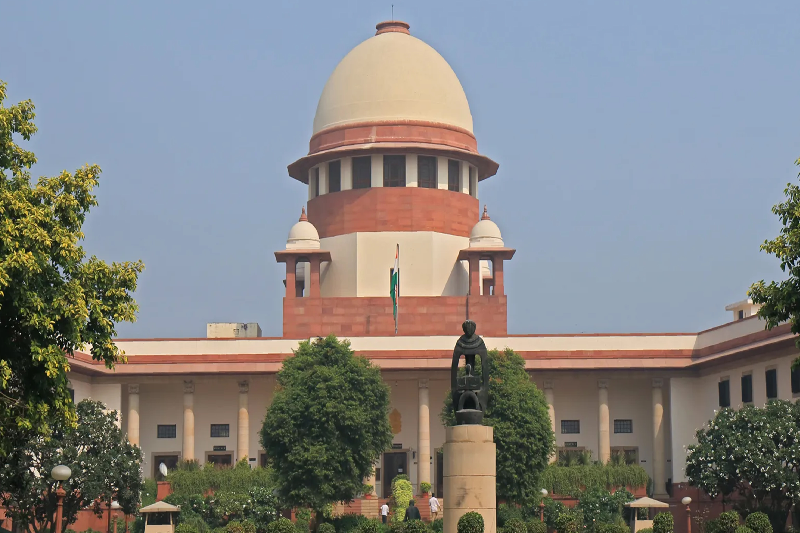
Supreme Court Upholds Telangana’s Domicile Rules for State Quota Medical Admissions
In a significant judgment with far-reaching implications for medical aspirants, the Supreme Court of India on Monday upheld the Telangana government's amended domicile rules governing admissions to MBBS and BDS courses under the state quota in medical and dental colleges.
A bench comprising Chief Justice B. R. Gavai and Justice K. Vinod Chandran allowed the Telangana government’s appeal, thereby validating the Telangana Medical and Dental Colleges Admission Rules, 2017, which were amended in 2024.
The court ruled that the state is within its constitutional and administrative rights to impose eligibility conditions based on a student’s educational history within the state.
What Are the Telangana Domicile Rules?
According to the amended rules, only those candidates who have studied in Telangana for the last four consecutive years up to Class 12 are eligible to apply for admission under the state quota in government and private medical and dental colleges.
This effectively means that permanent residents of Telangana who have studied outside the state during this period will not qualify for the state quota unless they fulfill the four-year in-state education criterion.
Background: Telangana High Court Ruling
Previously, the Telangana High Court had struck down the rule, stating that permanent residents of the state should not be denied access to state quota admissions merely because they pursued part of their education elsewhere.
The High Court's ruling had opened the door for Telangana domicile holders living or studying outside the state to claim eligibility for medical and dental seats reserved under the state quota.
However, the Telangana government challenged this ruling, asserting that the intent of the domicile rule was to prioritize students who have been part of the state’s educational system and are more likely to serve within Telangana’s healthcare infrastructure.
Supreme Court's Decision: Key Takeaways
- The Supreme Court has overturned the High Court’s judgment, siding with the state’s argument in favour of its educational policy.
- The decision reaffirms the state's authority to set reasonable criteria for state quota admissions.
- The rule now stands enforced, restricting state quota admissions to candidates who studied in Telangana for at least four consecutive academic years ending with Class 12.
The court’s verdict is seen as a victory for state policy autonomy, particularly in the context of public health planning, regional representation, and educational continuity.
Legal Representation and Timeline
The Telangana government was represented by senior advocate Abhishek Manu Singhvi and lawyer Sravan Kumar Karnam. The Supreme Court had reserved its verdict on the matter on August 5, 2025, and announced the decision on September 2, 2025.
The detailed written judgment is awaited, which is expected to provide further clarity on the court’s reasoning and the constitutional principles considered.
Implications for NEET UG Aspirants
This decision directly affects NEET UG candidates who are either originally from Telangana or claim domicile but have completed part of their education outside the state. Such students will now only be eligible for the all-India quota and not the state quota, unless they meet the four-year education-in-state requirement.
Additionally, the judgment could influence similar cases in other states, where domicile criteria for professional courses are being contested or redefined. It also sets a precedent supporting the link between local education and local representation in professional admissions.
Balancing Domicile and Educational Equity
While the decision is expected to streamline the admission process in Telangana, it also reignites debate about how states should balance domicile-based preferences with the educational aspirations of citizens who move frequently due to jobs, transfers, or other reasons.
The policy reflects a growing trend where states design education and admission frameworks to retain talent, strengthen local workforces, and ensure that students nurtured in the state’s schooling system are rewarded accordingly.
Looking Ahead
As the detailed judgment is awaited, legal experts and education policy analysts will closely examine how the court has interpreted the balance between fundamental rights, federal structure, and state-level autonomy in education.
Meanwhile, students, parents, and schools in Telangana must align with the new eligibility criteria when preparing for future NEET UG admissions, especially under the state quota.
This verdict underscores the importance of understanding state-specific rules in addition to national entrance exams like NEET and reflects the evolving landscape of medical education policy in India.


